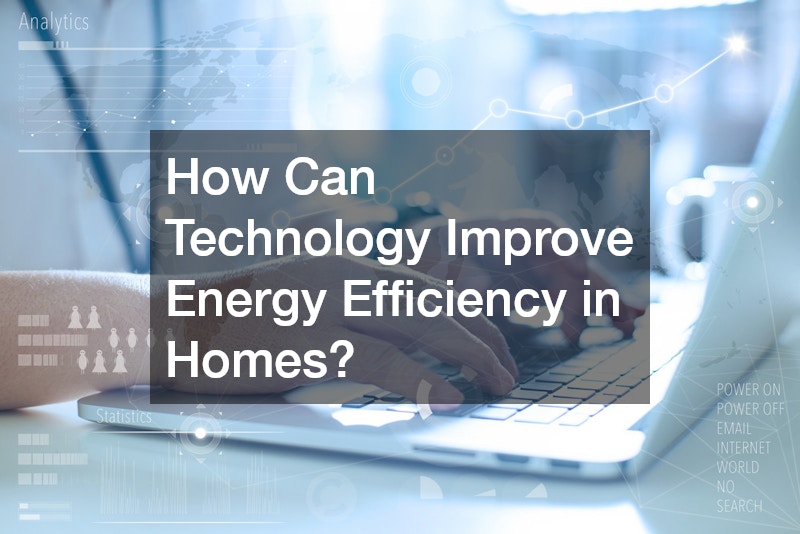The electronic age has revolutionized nearly every aspect of modern living, from the way we work and communicate to how we design and inhabit our homes. Home renovations, once primarily about aesthetics and function, are now driven by cutting-edge technologies that enhance comfort, efficiency, and sustainability. Custom home builders, contractors, and homeowners alike are embracing smart solutions to create tech-forward spaces that meet the demands of an ever-evolving digital landscape. This article explores how technology can transform your home into a futuristic haven, tailored to your needs in this remarkable era of innovation.
1. What Are the Benefits of a Smart Home in the Era of Tech?
Smart homes offer a range of benefits, making them a cornerstone of the electronic age.
A. Increased Convenience and Automation
Imagine controlling your lights, heating, and appliances with just your voice or smartphone. Smart home systems like virtual assistants simplify daily routines, enhancing your quality of life.
B. Enhanced Energy Efficiency
Automated systems optimize energy use. For instance, smart thermostats adjust heating and cooling based on occupancy, helping you save on costs while staying comfortable.
C. Improved Security Features
From smart locks to motion sensors, advanced security devices provide peace of mind, ensuring that your home remains safe even when you’re away.
D. Customizable Living Spaces
Homeowners can create personalized environments with features like programmable lighting and music systems, adapting spaces to their moods and activities.
E. Boosted Property Value
Tech-forward renovations attract buyers, making features like kitchen remodeling with smart appliances or integrated air conditioning valuable selling points.
2. How Can Technology Improve Energy Efficiency in Homes?
Tech-driven energy solutions play a critical role in reducing environmental impact.

A. Smart Thermostats
Devices like Nest or Ecobee learn your habits and optimize heating and cooling, ensuring efficient energy use throughout the year.
B. Energy Monitoring Systems
Track your electricity consumption in real time and identify opportunities to save energy and lower bills.
C. Eco-Friendly Appliances
Smart refrigerators, microwave, and washing machines adjust their functions to use minimal energy while maximizing performance.
D. Automated Lighting Solutions
Motion-activated and voice-controlled lighting systems eliminate waste and create ambiance.
E. Solar Panel Installations
A renewable energy powerhouse, opting for a solar panel is becoming a staple in modern homes. Custom home builders often integrate these into designs to maximize energy independence.
3. What Are the Latest Trends in Smart Home Technology?
Tech trends are shaping homes into more intuitive and connected spaces.
A. Voice-Controlled Systems
Systems like Amazon Alexa or Google Assistant allow hands-free control of nearly every aspect of your home.
B. Integrated IoT Devices
Internet of Things (IoT) devices connect an appliance service, security systems, and more, providing seamless management from a single platform.
C. AI-Powered Home Assistants
AI assistants adapt to your preferences, offering tailored recommendations for everything from entertainment to climate control.
D. Intelligent Security Cameras
These cameras use facial recognition and motion detection, ensuring maximum safety for your property.
E. Smart Entertainment Systems
Integrated systems create immersive home theaters with advanced sound and visual technologies.
4. How Can Digital Solutions Enhance Home Security?
Modern security systems leverage advanced tech to safeguard homes.

A. Smart Locks
Control access remotely, granting entry to trusted individuals without needing physical keys.
B. Motion Detection Sensors
These sensors activate alarms or lights when unusual movement is detected, deterring intruders.
C. Wireless Surveillance Cameras
Offering live feeds and recording capabilities, these cameras integrate with mobile apps for remote monitoring.
D. Automated Alerts and Alarms
Receive instant notifications about potential security breaches, whether it’s a break-in or an unexpected package delivery.
E. Remote Access and Monitoring
Manage all your security systems from anywhere in the world via a smartphone app.
5. What Are the Best Smart Home Devices for Convenience?
Simplify your daily life with these innovative gadgets.
A. Virtual Home Assistants
Devices like Amazon Echo and Google Nest streamline tasks, from setting reminders to controlling connected devices.
B. Smart Plugs and Outlets
Turn traditional appliances into smart ones, allowing remote control and scheduling through apps.
C. Automated Window Blinds
Control sunlight and privacy levels with motorized blinds that adjust with the push of a button or voice command.
D. Smart Refrigerators
These appliances offer features like inventory tracking, recipe suggestions, and energy-efficient cooling systems.
E. Wi-Fi Enabled Laundry Machines
Manage your washing and drying cycles remotely, receiving updates on your phone when tasks are complete.
6. How Is Technology Revolutionizing Home Entertainment?
Entertainment at home has never been more immersive and personalized.
A. Streaming Services and Platforms
Accessing on-demand content is easier than ever with platforms that cater to diverse tastes in the electronic age.
B. High-Definition Virtual Reality Systems
VR systems create gaming and cinematic experiences that feel incredibly real.
C. Surround Sound Innovations
Multi-dimensional audio systems bring theater-quality sound into your living room.
D. Multi-Room Audio Capabilities
Stream music across your home seamlessly, with the ability to control zones independently.
E. Smart Televisions
These TVs integrate with streaming apps, voice assistants, and even your smart home network for effortless control.
7. What Role Does AI Play in Modern Home Design?
Artificial intelligence (AI) has become a transformative force in modern home design during the electronic age, shaping living spaces that are smarter, more intuitive, and highly adaptable. By integrating AI technologies, homeowners can achieve levels of personalization and efficiency that were unimaginable just a few years ago. Let’s explore the various ways AI is revolutionizing the way we plan, design, and live in our homes.

A. Personalized Home Environments
One of AI’s most powerful contributions is its ability to learn and adapt to individual preferences. Smart systems can track your daily routines and habits, adjusting environmental settings such as lighting, temperature, and even music to suit your lifestyle. For example, AI-powered lighting systems can dim the lights automatically as you wind down for the evening or brighten them when you begin your day. AI-driven climate controls, such as smart thermostats, can create customized heating or cooling zones within your home, ensuring that every room is perfectly tailored to your comfort.
B. AI-Driven Interior Design Tools
AI isn’t just about automation; it’s also a creative partner. Interior design tools powered by AI allow homeowners to experiment with room layouts, color schemes, and furniture arrangements in virtual environments before committing to physical changes. These tools can analyze a space and provide recommendations based on style preferences, room dimensions, and even existing furniture. Whether you’re working with custom home builders or undertaking a DIY renovation, AI-driven design tools save time and money by offering a clear vision of the final result.
C. Predictive Maintenance Systems
Maintenance is a critical aspect of homeownership, and AI is making it easier than ever. Predictive maintenance systems use machine learning to monitor appliances, HVAC systems, and other essential equipment. These systems can detect anomalies, such as unusual sounds or temperature fluctuations, and alert homeowners to potential issues before they escalate. For instance, an AI system might notify you that your heating oil system requires servicing, preventing costly repairs or breakdowns during the colder months. By addressing problems early, AI not only extends the lifespan of appliances but also reduces the risk of unexpected expenses.
D. Automation of Daily Tasks
AI excels at streamlining everyday tasks, freeing up time for homeowners to focus on what matters most. From automating grocery orders to managing household chores, AI-powered systems handle a wide array of responsibilities. For example, smart refrigerators equipped with AI can track your inventory, notify you when supplies are low, and even suggest recipes based on what’s available. Similarly, robotic vacuum cleaners and lawnmowers use AI to navigate and maintain your home with minimal intervention, ensuring that your space remains clean and orderly without added effort.
E. Smart Learning Thermostats
AI’s role in modern home design in the electronic age isn’t limited to convenience; it also enhances energy efficiency. Smart learning thermostats like Nest and Ecobee are equipped with AI algorithms that adapt to your schedule and preferences. Over time, these devices learn when you’re typically at home when you sleep, and when you’re away, adjusting the temperature automatically to optimize comfort and minimize energy use. In addition, many of these thermostats can integrate with other smart home devices, such as air conditioning systems and solar panels, to create a cohesive energy management strategy. This not only reduces your environmental footprint but also lowers utility bills.
8. How Can Homeowners Retrofit Their Homes with Smart Technology?
Even older homes can embrace the electronic age.
A. Wireless Systems for Old Structures
Wireless devices eliminate the need for invasive installations, making retrofitting easier.
B. DIY Smart Home Kits
Affordable and user-friendly kits let homeowners upgrade at their own pace.
C. Consulting Professional Installers
Experts ensure seamless integration of advanced systems, maximizing efficiency and performance.
D. Modular Smart Home Gadgets
Modular devices can be upgraded individually, keeping pace with technological advancements.
E. Cost-Effective Retrofitting Solutions
From affordable contractor supplies to renting equipment like dumpster rentals for cleanouts, retrofitting can be done within budget.
9. What Are the Considerations for Maintaining a Tech-Forward Home?
Maintenance is essential for keeping your smart home running smoothly during the electronic age.

A. Regular Software Updates
Ensure all devices are running the latest software for security and performance enhancements.
B. Network Security Practices
Protect your smart devices from hacking with strong passwords, firewalls, and secure Wi-Fi.
C. Compatibility Checks for New Devices
Before purchasing new tech, confirm that it integrates with your existing systems.
D. Managing Power Supply and Backup
Consider storage for electric vehicle batteries or backup generators to manage increased power demands.
E. Continuous Learning and Adaptation
Stay informed about new technologies and trends to maximize your home’s potential.
10. How Does the Era of Tech Influence Future Home Design?
The electronic age is reshaping how homes are built and function.
A. Integration of Sustainable Tech
Smart homes incorporate sustainable technologies, like solar panels and energy-efficient heating oil systems, to reduce environmental impact.
B. Evolution of Smart Workspaces
With remote work on the rise, homes are now designed with integrated office spaces and tech-forward productivity tools specific to the electronic age.
C. Influences on Minimalist and Compact Living
Technology in the electronic age enables functional yet compact living spaces, blending aesthetics with practicality.
D. Accessibility and Inclusive Designs
Smart solutions cater to diverse needs, ensuring homes are accessible for all.
E. Future-Proofing Homes for New Innovations
Custom home builders are focusing on adaptable designs that can evolve with emerging technologies.
The electronic age has ushered in a transformative era for home renovations, redefining how we approach comfort, convenience, and sustainability in our living spaces. Technology has become more than a luxury—it is now an essential component of modern homes, shaping everything from energy efficiency to personalized environments. By integrating cutting-edge tools and smart systems, homeowners can craft spaces that not only meet their current needs but also adapt to the evolving demands of the future.
One of the most significant benefits of tech-forward renovations is their ability to improve the way we live day to day. Smart appliances, automated systems, and AI-driven devices simplify routine tasks, providing more time to focus on family, work, and leisure. For example, smart kitchens equipped with Wi-Fi-enabled appliances streamline meal preparation, while AI-driven climate control ensures that every room in the house remains comfortable without the need for constant manual adjustments. These innovations transform homes into more functional and enjoyable spaces.
Beyond convenience, technology offers unparalleled opportunities for sustainability. Energy-efficient solutions such as solar panels, smart thermostats, and eco-friendly appliances reduce energy consumption and minimize environmental impact. Storage for electric vehicle batteries and integration with renewable energy sources further underscore the role of technology in creating homes that are both environmentally responsible and economically beneficial. With these advancements, homeowners can significantly lower utility costs while contributing to a greener planet.

